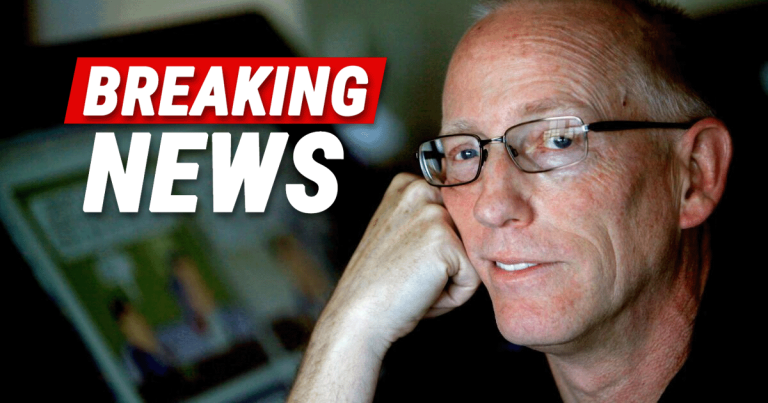
In America’s medical maze, patients battling life-threatening conditions fight two enemies: disease and the institutions supposedly saving them. When FDA-approved treatments exist but administrative delays block access, every lost hour could mean everything.
This week, one high-profile case exposed the system’s spectacular failures—and revealed how quickly things change when actual leadership shows up. Scott Adams, the creator of “Dilbert,” revealed recently that he has prostate cancer. His outlook is bleak. But there was a chance that he could receive treatment that was promising. His health care provider approved it, then dragged their feet.
So, he appealed to the president, in a desperate hope to speed the process. The outcome? Let’s just say it left political observers speechless.
From ‘The Post Millennial’:
Adams has secured an appointment for his cancer treatment, set for tomorrow. The news follows his public plea for help in accessing the newly approved therapy.
President Donald Trump responded Sunday to a post made by Author Scott Adams in which Adams said he would ask the president to help him secure a potentially life-extending cancer treatment.
Adams, who is in the late stages of prostate cancer, wrote on X that he planned to reach out to Trump directly after encountering delays with his healthcare provider.
The plea came from Scott Adams—yes, the Dilbert guy—whose decades of mocking corporate incompetence couldn’t have prepared him for this medical nightmare. With cancer spreading through his bones and time evaporating, Adams faced an infuriating reality: treatment approved, drug available, but Kaiser Permanente’s scheduling system had completely failed him.
When Bureaucracy Fails, Leadership Steps In
President Trump’s response? Immediate. “On it!” he posted on Truth Social. Within hours, HHS Secretary Robert F. Kennedy Jr. jumped in: “Scott. How do I reach you? The President wants to help.”
This wasn’t political theater. (Though watching bureaucrats scramble when the President calls? Always entertaining.) While Washington debates healthcare policy, a man’s life dangled by a thread in California. Pluvicto reduces progression risk by 28%—impressive stats that mean nothing when bureaucracy blocks your IV appointment.
Kaiser Permanente—a healthcare giant managing billions—somehow couldn’t handle basic scheduling. Yet within hours of presidential intervention, Adams had his appointment locked for the next day. Funny how that works.
From Desperation to Hope
Adams’ situation was grim. Cancer throughout his bones, including his spine. Alternative treatments like ivermectin had failed. The pain had driven him to consider physician-assisted suicide before testosterone blockers brought temporary relief.
Pluvicto represented his final shot—not a cure, but precious time. The FDA approved it in 2022. Science? Check. Authorization? Check. Access? Well, that’s where things got interesting.
Trump’s intervention revealed an uncomfortable truth about American healthcare. When someone with authority cuts through nonsense, overnight miracles happen. Adams went from indefinite waiting while “declining fast” to treatment within 24 hours.
This isn’t about celebrity privilege. It’s about exposing how our system prioritizes paperwork over patients. Every American facing serious illness knows this torture—approved treatments delayed, prior authorizations pending, scheduling systems apparently designed by sadists.
What this episode proves is that barriers to life-saving treatment are administrative, not medical. When leadership actually leads—imagine that—the impossible becomes possible overnight. For Scott Adams, that meant everything. For other Americans without presidential speed-dial? They’re still waiting.
Key Takeaways
- Trump’s immediate intervention secured life-saving treatment within 24 hours
- Healthcare bureaucracy blocked FDA-approved cancer therapy despite approval
- Presidential action exposed systemic failures affecting countless Americans daily
- Administrative barriers, not medical ones, often prevent patient access
Sources: The Post Millennial, TIME


